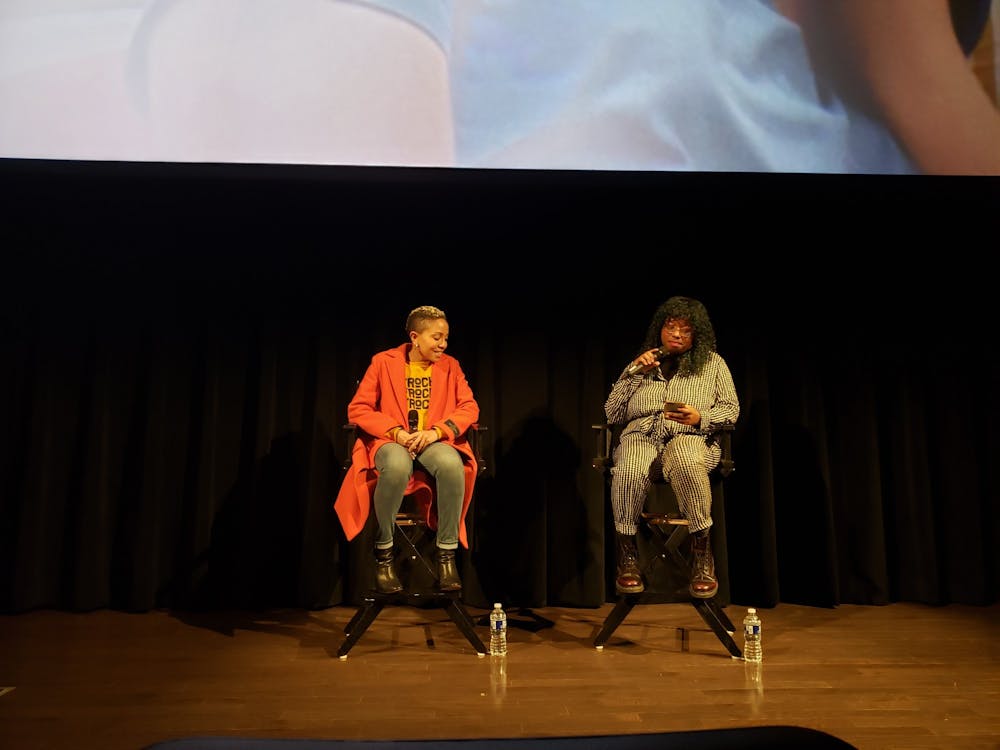The Parkway Theater hosted a screening of Premature and an accompanying Q&A and discussion with Zora Howard, an actress and writer for the film, as part of the annual Maryland Film Festival in Baltimore on Feb. 28.
Howard was born and raised in Harlem and won the Urban Word NYC Grand Slam finals at 13. Howard received a BA from Yale University and an MFA from University of California San Diego, and she teaches at the Harlem School of the Arts. Premature was written by Zora Howard and Rashaad Ernesto Green and directed by Green, and it was shot in a section of Harlem over several weeks.
Premature was screened at the 2019 Sundance Film Festival and the Maryland Film Festival. IFC Films released Premature in theaters and on-demand in February.
The film is a romantic drama focused on the story of Ayanna, a 17-year-old girl played by Howard who is living in Harlem with her mother, and Isaiah, a music producer played by Joshua Boone.
Ayanna is an aspiring poet and regularly writes in her notebook about events in her life that inspire her. She hangs out with her group of friends, who introduce her to Isaiah. Isaiah then approaches Ayanna at a local laundromat and they begin to see each other more frequently.
As they grow closer, they face several obstacles in their relationship. During a house party, Isaiah is accosted by Lauren, his ex-girlfriend. This causes Ayanna to doubt Isaiah’s fidelity to her.
Later in the film, Ayanna discovers that she is pregnant with Isaiah’s child. She keeps this a secret from Isaiah as she aborts the child.
After Isaiah discovers the pregnancy, he is enraged that Ayanna didn’t consult him for his opinion. Even as Ayanna calls and text messages Isaiah, he does not respond. At a club, Ayanna asks the singer to perform a song that Isaiah once told her about. At the end of the film, Ayanna is at the train station and Isaiah walks up to her.
Howard believes that contemporary media focuses too much on violence done to black bodies, and the purpose of Premature is to represent an aspect of ordinary black life.
“I, as a consumer, have had several experiences going to the movies where there are a lot of images of black people dying, or sudden violence inflicted on black bodies, or black people enslaved,” she said. “It is hard to go see something in theaters right now.”
Howard also wanted to include contemporary issues because she believed that there should be a realistic depiction of how young people are grappling with difficult issues.
“This is a love story, but this is also young people of color in a certain time. This is a contemporary film. This is supposed to be about this moment, and these are the thoughts that young people have. This is the everyday real. We are hearing these stories. It often feels like we are overwhelmed with these stories each day, each week. We are always trying to navigate that kind of trauma,” she said.
Overall, the audience reaction was positive. MICA alum Dhurata Mehmetaj thought that the film broke out of the expectations of genre.
“It was interesting to watch a movie about things I’m already interested in: romance, coming-of-age movies. All of the coming-of-age and romance films that are blockbusters are all the same protagonist over and over again. It was nice to see a different perspective,” she said.
Another MICA alum Amanda Velez-Cortez thought the focus on Ayanna allowed the plot to feel more realistic.
“I think especially, the fact that it was centered around one character, and she was really young, and she experiences growth, and it’s not about the guy, really. She’s allowed to be complex and go through this growth that felt real,” she said.
When asked about future projects, Howard responded that she was open-minded about the future of her work.
“Anything’s possible. Always telling stories, always trying to find interesting challenging characters and build a world for them and get them down on the page and find someone to help me put it up and put it out into the world. That’s the forever work,” Howard said.





